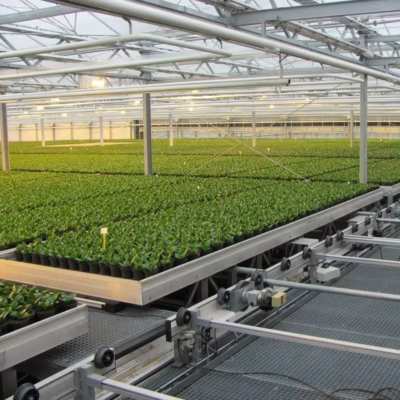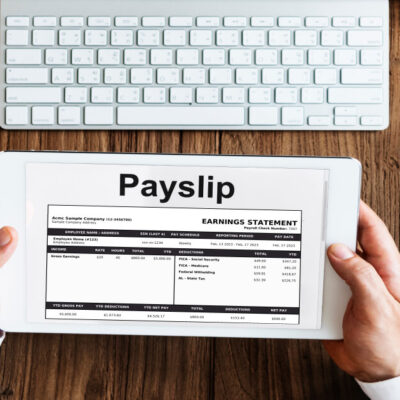In the heart of the UAE, Dubai stands as a beacon of innovation, luxury, and rapid urban development. Its towering skyscrapers, expansive commercial zones, and vibrant residential communities speak to the city’s ambition—but also present unique challenges in ensuring public safety. One of the most critical areas of concern is fire safety.
In a city where a single incident can have catastrophic consequences, fire safety equipment is not just a box to check—it’s a crucial element in safeguarding human lives, preserving property, and ensuring business continuity. This blog offers an in-depth look at the fire safety landscape in Dubai, the essential equipment every property must have, and how businesses can stay ahead by prioritizing compliance and innovation.
The Fire Safety Landscape in Dubai
Dubai’s hot climate, dense infrastructure, and complex building designs mean the risk of fire is always present. While the city has one of the most advanced Civil Defence systems in the region, the first few minutes of a fire incident often determine the outcome.
According to the Dubai Civil Defence (DCD), the majority of fire incidents are preventable, caused by:
-
Poor electrical maintenance
-
Flammable material storage
-
Neglected fire safety systems
-
Lack of staff training in emergency procedures
To reduce these risks, the UAE enforces stringent fire safety regulations. Every residential, commercial, industrial, and mixed-use building must meet the standards laid out in the UAE Fire and Life Safety Code of Practice—a document that emphasizes preparedness, proper equipment, and professional maintenance.
Mandatory Fire Safety Equipment for Dubai Properties
Whether you own a high-rise residential tower, run a restaurant in Downtown Dubai, or manage a warehouse in Jebel Ali, here are the fire safety essentials mandated or recommended by DCD:
1. Fire Extinguishers
Fire extinguishers are the first line of defense. They must be:
-
Placed at accessible points on every floor
-
Labeled clearly
-
Checked monthly and serviced annually
Types include:
-
CO2: Best for electrical fires
-
Dry powder: Versatile, for flammable liquids and gases
-
Foam and water: For paper, wood, and textile fires
-
Wet chemical: For kitchens and cooking oil fires
2. Smoke Detectors and Heat Alarms
These provide early warnings before a fire becomes unmanageable. In residential settings, at least one detector is required per room. In commercial setups, smart systems are integrated with control panels and sometimes directly linked to DCD.
3. Automatic Fire Suppression Systems
Sprinklers or gas suppression systems are required in high-risk areas, especially:
-
Server rooms
-
Commercial kitchens
-
Factories or workshops
Systems such as FM-200, NOVEC 1230, or Inergen are increasingly common for tech-sensitive environments.
4. Fire Hose Reels and Hydrants
These are mandatory in multi-story buildings, shopping centers, and industrial locations. Hose reels provide an immediate and continuous source of water, essential for controlling larger fires before responders arrive.
5. Emergency Exit Lighting and Signage
Evacuation becomes chaotic without clear visual guidance. Emergency exit signs with battery backup must be installed in all corridors, staircases, and public spaces. These lights must remain operational during power outages.
6. Fire Blankets
In residential apartments or kitchens, fire blankets offer a quick, mess-free method to smother small fires, especially those involving oils or fabrics.
Staying Compliant: The Role of Dubai Civil Defence
Every installation, inspection, or modification of fire safety systems in Dubai must be approved by DCD-licensed contractors. The DCD also requires:
-
Annual inspections of all systems
-
Regular drills in commercial buildings
-
Fire safety plans including exit strategies, muster points, and responsibilities
The DCD has developed a smart inspection portal where property managers can track the compliance status of their fire systems, schedule inspections, and receive notifications about upcoming deadlines.
Choosing a Fire Safety Equipment Supplier in Dubai
With dozens of providers available in Dubai, choosing the right partner can be overwhelming. Here’s what to look for:
1. DCD Certification
Only choose companies that are approved by Dubai Civil Defence. This ensures that all installations meet government standards and are legally recognized.
2. Experience and Track Record
Reputable companies have long-standing contracts with hotels, hospitals, government buildings, and residential towers. Look for case studies or client testimonials.
3. Product Range and Customization
Top suppliers offer:
-
Equipment tailored for specific industries (e.g., schools, factories, healthcare)
-
Turnkey solutions (supply, install, maintain)
-
Training programs for staff and residents
4. Maintenance and Support
Routine maintenance is mandatory in Dubai. Select a supplier that offers Annual Maintenance Contracts (AMCs), including 24/7 emergency response.
Popular providers in the region include:
-
NAFFCO
-
Bristol Fire Engineering
-
Firex
-
Concorde-Corodex
Fire Safety in Specialized Environments
Residential Towers
-
Smoke alarms and extinguishers are the baseline.
-
Buildings must have centralized alarm systems.
-
Evacuation drills are encouraged by building management.
Hotels and Hospitality
-
Must adhere to both fire and life safety codes.
-
Fire doors, sprinkler systems, and full-staff training are mandatory.
Warehouses and Industrial Units
-
Face higher fire risks due to machinery, flammable liquids, and storage.
-
Gas suppression systems and zoning of fire compartments are key.
Restaurants and Commercial Kitchens
-
Grease fires are a major concern.
-
Wet chemical extinguishers, hood suppression systems, and kitchen fire blankets are essential.
Emerging Trends in Fire Safety in Dubai
Dubai is at the forefront of fire safety innovation. Here’s what’s shaping the future:
1. Smart Fire Detection
AI-powered systems that detect heat anomalies, gas leaks, or early smoke using IoT sensors are gaining traction in smart buildings.
2. Wireless Fire Alarms
Wireless systems simplify installation, especially in heritage sites or remote areas, and allow cloud-based monitoring.
3. Integrated Safety Platforms
Modern buildings use centralized dashboards to monitor fire safety equipment alongside CCTV, access control, and HVAC systems.
4. Green Fire Suppression Agents
Environmental regulations are pushing for the use of ozone-friendly fire suppression systems, especially in IT and data-heavy environments.
Best Practices for Business and Property Owners
If you’re responsible for a property or business in Dubai, here’s a simple checklist to stay ahead:
-
✅ Conduct a fire risk assessment annually
-
✅ Ensure all extinguishers are accessible and up to date
-
✅ Install alarms and link them to central control panels
-
✅ Train staff in using fire equipment and evacuation protocols
-
✅ Review your AMC contract regularly and update as needed
-
✅ Maintain open communication with your fire safety provider
-
✅ Stay updated with new DCD regulations or advisories
Conclusion
Fire safety in Dubai is not an option—it’s a legal and moral obligation. In a city that blends innovation with tradition, and luxury with responsibility, fire protection must be prioritized in every sector. By investing in modern fire safety equipment, choosing reliable partners, and committing to regular training and maintenance, property owners and businesses can create a safer environment for everyone.
Remember: fire doesn’t wait, and neither should your preparedness. Equip, educate, and enforce safety today—because tomorrow might be too late.


